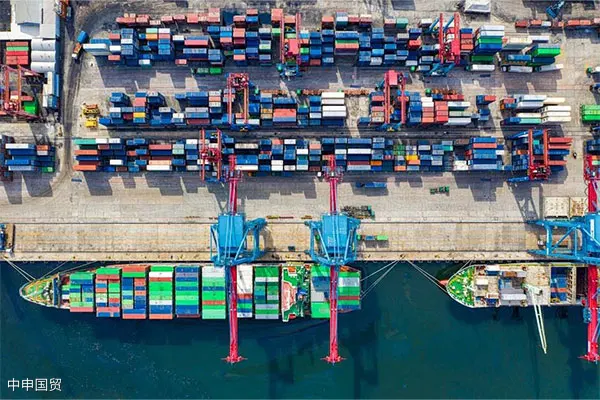- Shanghai Zhongshen International Trade Co., Ltd. - Two decades of trade agency expertise.
- Service Hotline: 139 1787 2118
The U.S. Trade Representative recently initiated a Section 301 investigation into Chinas maritime, logistics, and shipbuilding sectors, drawing international attention. On the 21st, Chinas CCPIT responded that the investigation is unreasonable and unfounded, announcing legal countermeasures—a direct rebuttal to U.S. actions.
On March 12 this year, five major U.S. labor unions filed an investigation request with the Office of the U.S. Trade Representative, alleging that the Chinese governments dominance in the global shipbuilding, maritime, and logistics industries is based on non-market policies. Subsequently, on April 17, the U.S. Trade Representative officially announced the initiation of a Section 301 investigation, aiming to examine whether Chinas actions, policies, and practices in these industries hinder fair competition.
The U.S. labor unions complaint mentioned that Chinese-made ships should be subject to port fees, suggesting that these fees be used to establish a fund to revitalize the domestic U.S. shipbuilding industry. This proposal is clearly intended to protect the interests of the U.S. shipbuilding industry by limiting the competitive advantage of Chinese ships.
In response, a spokesperson for the China Council for the Promotion of International Trade (CCPIT) emphasized that there is no direct causal relationship between the rise of Chinas shipbuilding industry and the decline of the U.S. shipbuilding industry. The CCPIT called on the U.S. to respect the principles of market economy and fair competition, immediately halt the ongoing Section 301 investigation, and return to a rules-based multilateral trade system.
Apart from the shipbuilding industry, U.S. Trade Representative Katherine Tai mentioned in a speech on April 19 that the U.S. government is reviewing the imposition of tariffs on over $300 billion worth of goods imported from China, with conclusions expected soon. Tai also noted that overcapacity in Chinas steel and aluminum industries poses a threat to the U.S., indicating that the U.S. may take stronger measures to address this challenge.
At a press conference on April 18, Chinese Foreign Ministry spokesperson Lin Jian stated that the Chinese government has consistently urged the U.S. to comply with international trade rules, respect the principles of fair competition, and immediately cease trade protectionist measures against China. Lin emphasized that China will take all necessary measures to safeguard its legitimate rights and interests.
This series of events indicates that trade and economic policy frictions between China and the U.S. are intensifying. The U.S. is attempting to protect its domestic industries through measures like the Section 301 investigation, while China is countering U.S. actions through legal channels and international cooperation. This trade dispute not only involves the economic interests of the two global powers but may also have profound implications for the global trade environment.

Related Recommendations
? 2025. All Rights Reserved. 滬ICP備2023007705號-2  PSB Record: Shanghai No.31011502009912
PSB Record: Shanghai No.31011502009912









